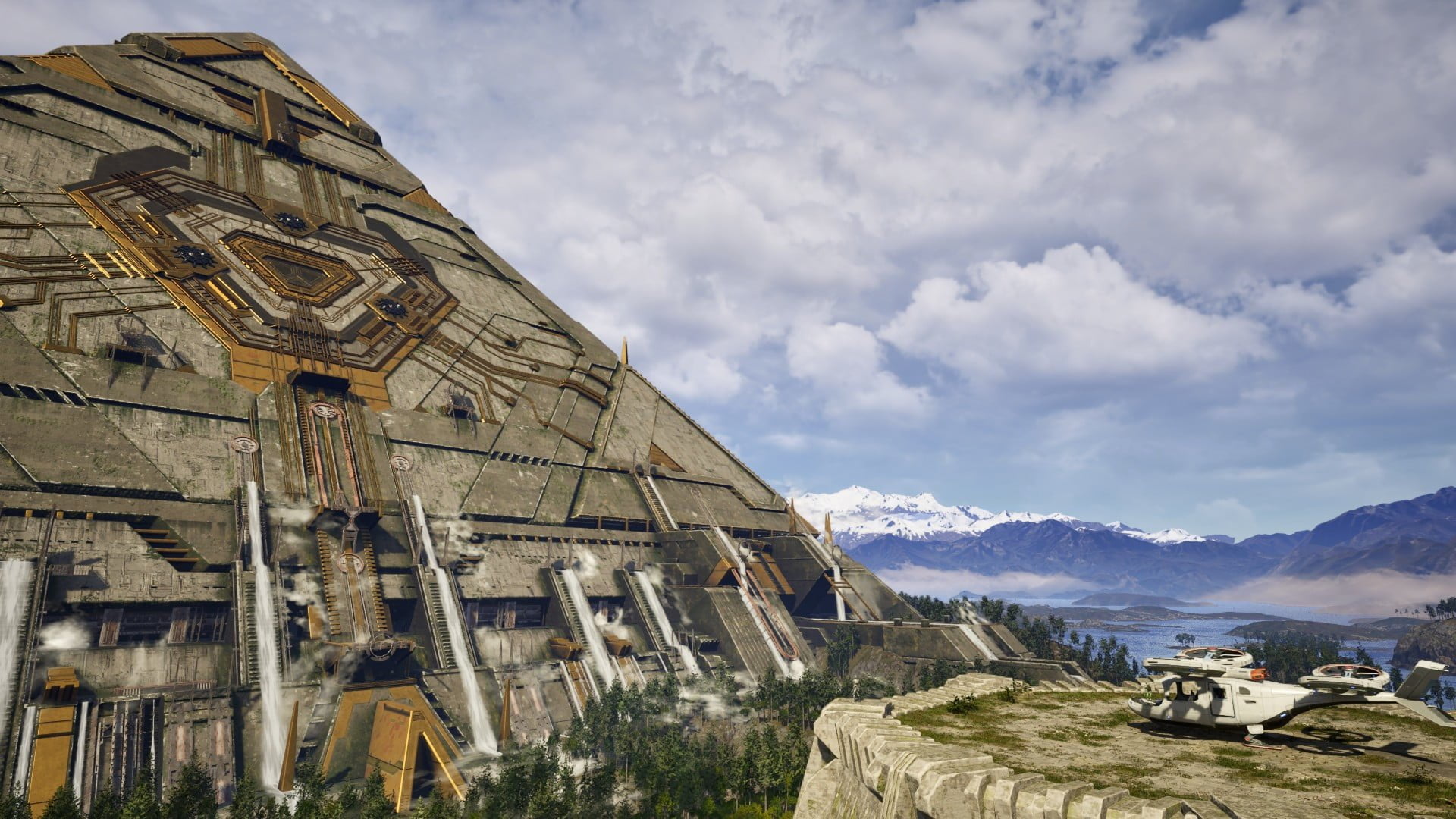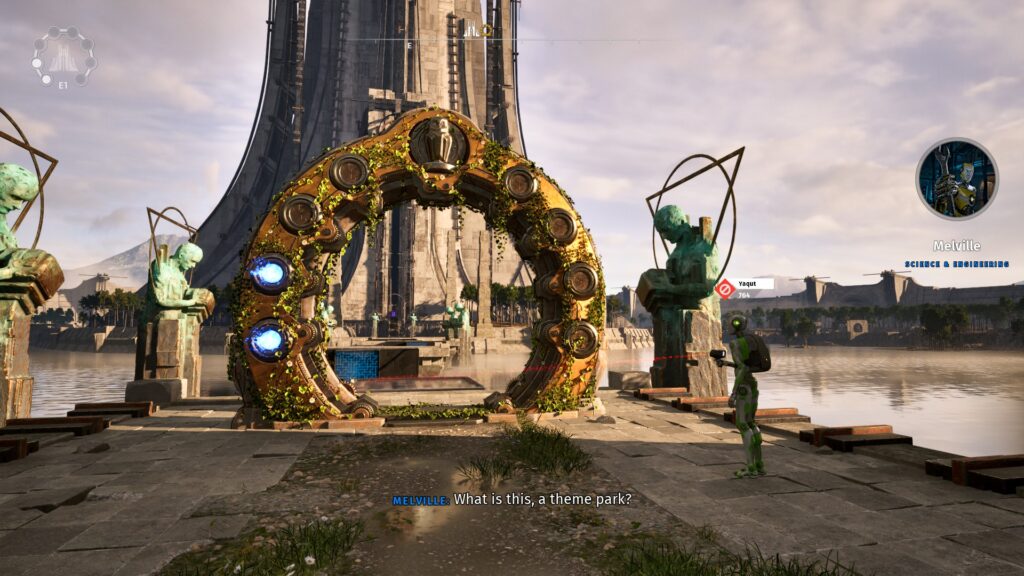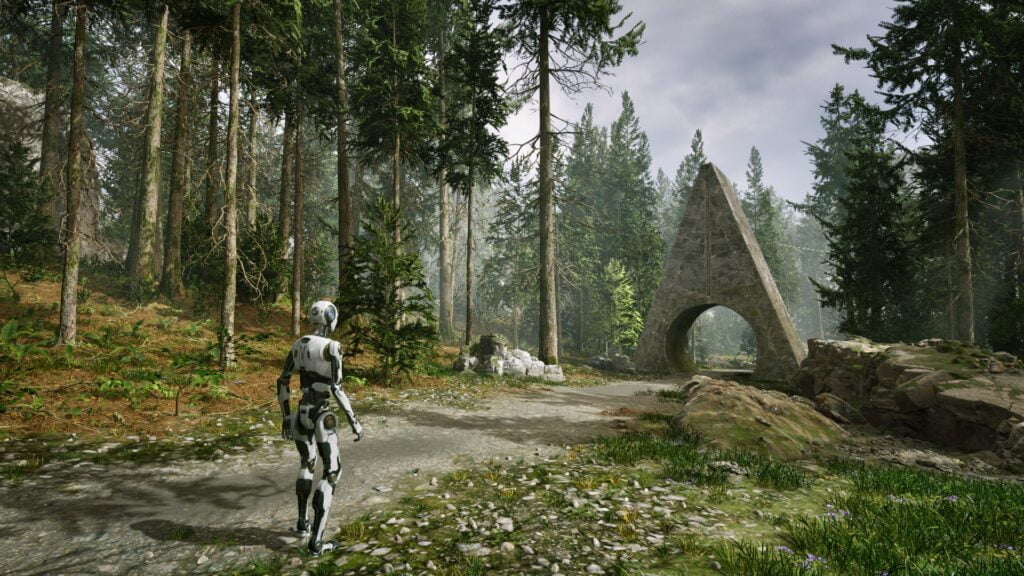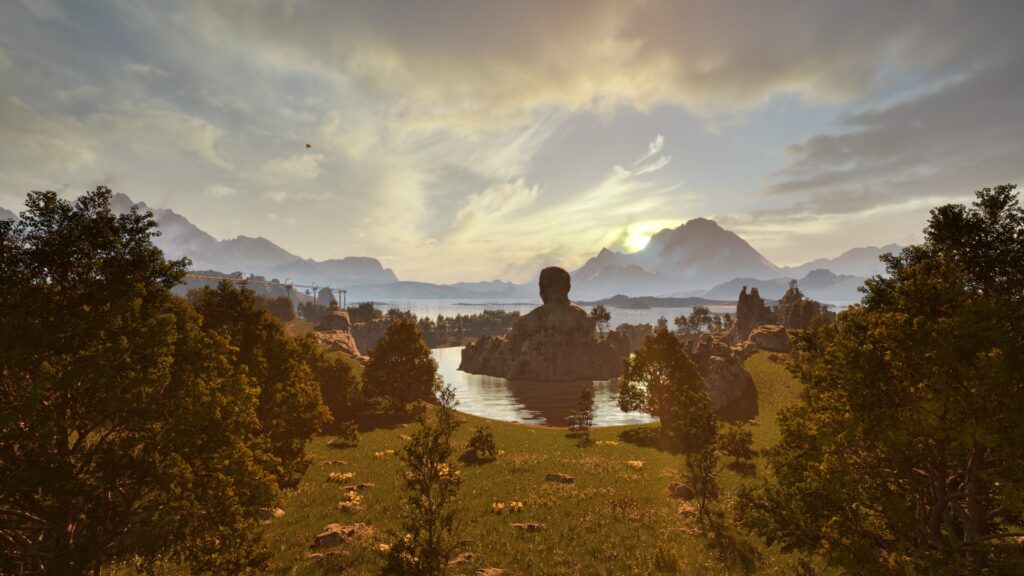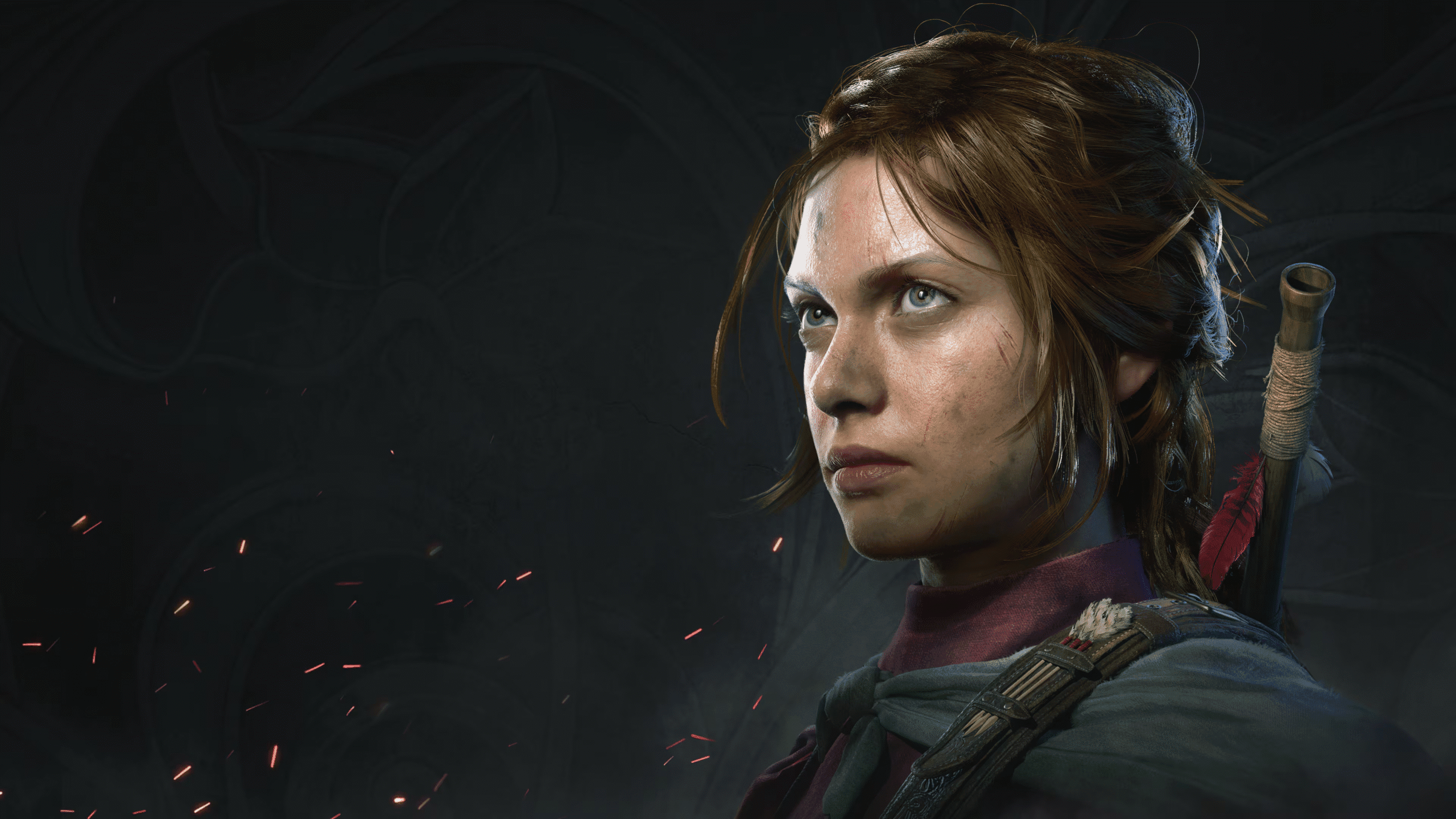When the original Talos Principle released back in 2014, I remember being rather surprised by it. A first-person puzzle game filled with philosophy, from Croteam? The makers of Serious Sam?! It was a game which felt extremely outside their established wheelhouse of fast-paced first-person shooters. However, Croteam showed ably they could do more than just shooting. The Talos Principle was brilliant; an intriguing and demanding puzzle game which didn’t hold the player’s hand, and also provided an introspective look about the nature of reality and artificial life, since you play as an android living inside a computer simulation. Now, almost a decade later, The Talos Principle 2 welcomes us back into the world of android civilization, set several hundred years after the end of the first game.
You play as the newly “born” android 1k, so named because you are the 1,000th robot to have been created since the original “Creator” (the android you played in the first game) was freed from simulated purgatory after challenging its master, Elohim, and ascending to enter the real world. Hundreds of years have passed since then, allowing robot civilization to slowly grow until they have built an entire futuristic city, New Jerusalem. However, amid the celebrations of your arrival, a gigantic holographic projection of the mythological character of Prometheus interrupts proceedings, inviting the androids to journey to a mysterious island. From there, you join an intrepid team to investigate the island and attempt to uncover its secrets.
The Talos Principle 2 is a vastly bigger game than its predecessor in almost every regard. Although the core facet of the gameplay is still centred around solving test chamber-esque puzzles, there is also an enormous amount of new content as well. Most pointedly, the story and characters are much more developed, allowing you to not only talk to a wide-range of robots, but also to explore much of the city of New Jerusalem before you even embark on the expedition to the island, learning about how this society of artificial intelligence evolved and was built. Some dialogue choices can impact the story, leading to a number of different endings.
You get to know your core team members pretty well, each of whom feel like fully-rounded people. Byron is one of the oldest androids and the most philosophical, while Melville is more cranky, focussed on fixing various bits of technology and infrastructure. You can also ask their opinion on the various things that have been discovered, as well as hearing more of their backstory. The philosophy is also still present in the writing, focussing more on the nature of civilization and what it means for the androids to be living in a post-human world, whether they should try to live in harmony with nature or to attempt to tame it. References to Prometheus and the gift of fire abound, especially regarding whatever the contents of the so-called Megastructure in the middle of the island might be.
The environments you’ll explore are also significantly larger and more open than in the original game. The island is broken up into a number of zones, each where a set of puzzles resides. You can walk around and tackle most of the puzzles in any order you fancy, although helpful navigation signs will always point you to the closest one you haven’t attempted. The geography and beauty of many of these areas is staggering, from crumbling formal gardens, to forested mountains or wide sandy beaches. Likewise New Jerusalem itself is a vast technological marvel enclosed within an incomplete dome, looking like a futuristic dream. You can ride a kind of miniature railway between zones, and are able to return to old zones to mop up any puzzles you might have missed.
Like the original game, The Talos Principle 2 does not skimp on the puzzles themselves. Alongside the core numbered 72 (9 zones of 8 puzzles) each zone has two optional puzzles and one golden puzzle of higher difficulty, which can only be unlocked after completing all the others. These feature some returning elements from the first game such as light-refracting crystals you need to move in order to direct laser beams, or boxes to place on buttons, but also have new tools including a beacon which can merge two different colours of beams in order to form a new colour (red, green, blue) or what is basically miniature tunnelling device which when activated creates a small hole in some walls through which objects can be dropped. There are also a host of secrets and no doubt some easter eggs to uncover, as the original game was rife with them. I particularly enjoyed the shrine of cat pictures in New Jerusalem for example.
Much like the first game, the difficulty is excellent at managing to make you feel smart when you solve a puzzle, but not punishing you if you are truly stuck. If you’re really scratching your head, around the world outside of the main puzzles are sometimes dotted Prometheus Sparks, which will allow you to skip a puzzle when the respective terminal is used. If you then want to solve the puzzle correctly, the spark is refunded to you when you do. Once you learn the rules of how puzzles are laid out and what you can and can’t do, it becomes a matter often of deducing the correct order in which to do things, or to get a certain object or laser beam connected to something else. Finishing a puzzle gradually unlocks the central tower in each zone, which relates back to the main story.
The Talos Principle 2 somehow managed to impress me even more than the surprise of the original game did, leaving me completely blown away not only by the sheer size of the game, its beautiful environments and interesting characters, but also the masterful integration of the puzzles into both the world and the storyline. It might seem artificial and contrived to be solving these puzzles, but in the same way that the Portal games managed to make them seem entirely natural, so too does The Talos Principle 2 ground them geographically and philosophically within its world. It might have been almost a decade since the first game, but The Talos Principle 2 was more than worth the wait.

